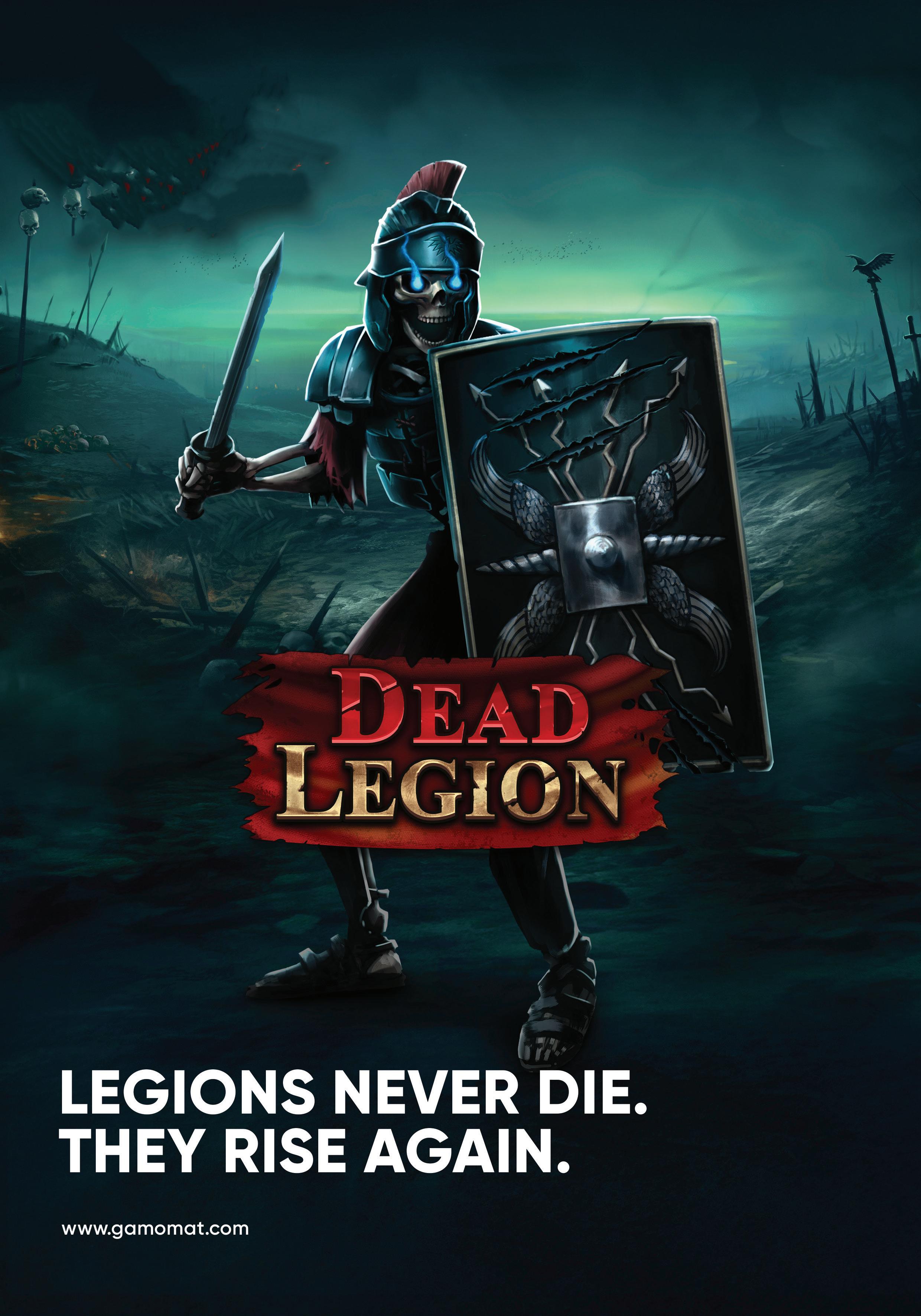



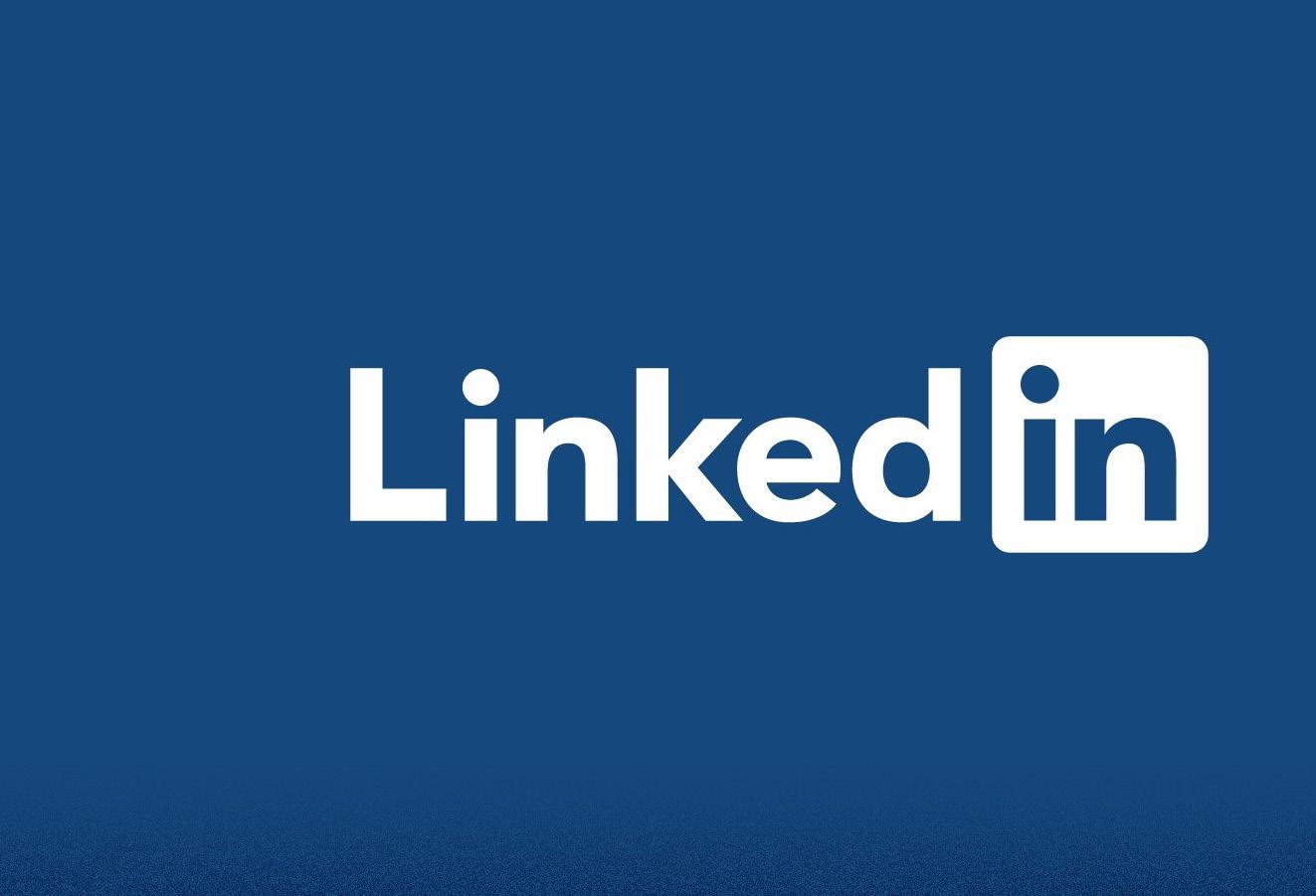















Lana Thompson - Editor
Welcome to the latest edition of the Infinity Gaming Magazine and our first back since the summer vacations. However in the time we live many within the industry do not have the traditional summer holiday vacation we used to have, it seems events are non-stop now.
We all need a break from the high octane industry we live in and hope you all managed to get some time off, but we are back and all refreshed ready for what will be a very busy autumn and winter for the gambling industry.
As you all know we have launched the categories and entries are open for the 2026, 19th edition of the International Gaming Awards (IGA), taking place again in Barcelona on the 18th January. Already we have received hundreds of nominations for what promises to be the biggest ever IGA. But you still have time as entries do not close till October.
And of course we cannot do any of this without our wonderful sponsors and thank you to those already confirmed such as Betconstruct, Digitain, 1xBet, Spribe, Alea and Videoslots, you are all superb for your belief in what we do and we have many more sponsors to announce very soon.
2026 will also welcome back the London Gaming Congress (LGC) now in its second year and with the huge impact the event had in March the next edition is going to be massive and we already have speakers lining up and sponsors confirming for the 18th March date held again at the stunning iconic Savoy Hotel.
If you are interested in taking part as a speaker or sponsor please do contact the team.
Now to the magazine and we have some great articles and interviews as ever and one that caught my eye is the LinkedIn piece, there seems to be so many of you not happy with how LinkedIn is working at present, we try and explain how and why that is.
Enjoy the latest edition of the magazine and until next time.....
“To Infinity and Beyond!”
Regards, Lana
The Editor & Chief
CONTACT US
Clever Duck Media
Centrix@Keys
Keys Park Road
Staffordshire WS12 2HA UK
PRODUCTION
Clever Duck Media Centrix@Keys
Keys Park Road
Staffordshire WS12 2HA UK
PUBLISHING
Infinity Gaming Magazine is operated by © Clever Duck Media Ltd ® Company Reg. No. 687 1018 (Registered in England) V.A.T reg. no 972 6372 91
Sponsorship Opportunities Colin@cleverduckmedia.com
Business Partnerships Svetlana@gaming-awards.com
Marketing & Advertising Maria@cleverduckmedia.com
Editorial Content & PR media@cleverduckmedia.com









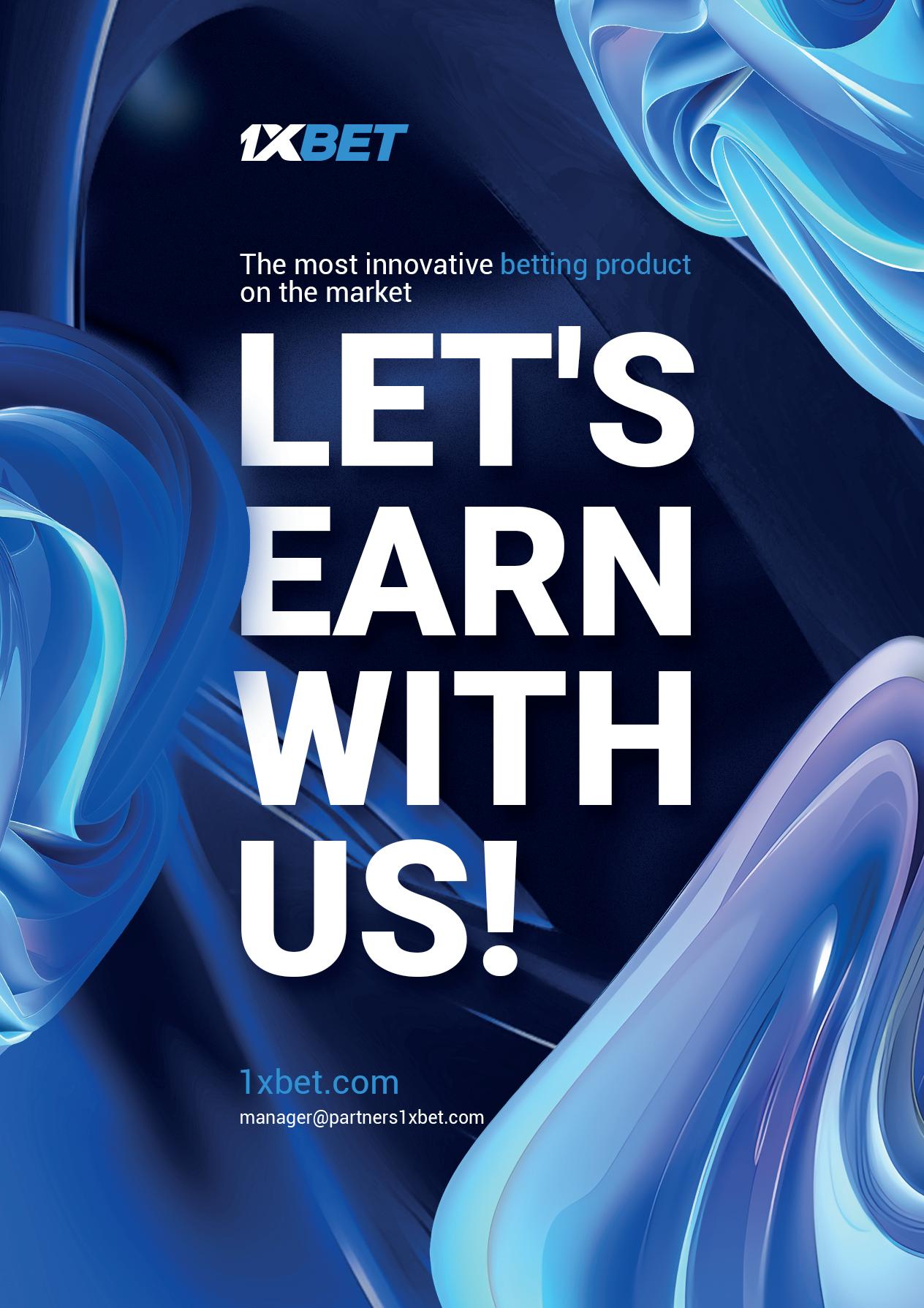

The gambling industry in the UK is currently facing significant turmoil, with major companies witnessing a major decline in their market value. Fears surrounding potential tax increases have led to a loss exceeding £4 billion in share value across the sector.
On Friday, 8th August shares of gambling firms such as Flutter, which operates Paddy Power, and Entain, the parent company of Ladbrokes and Coral, experienced a sharp decline. The market reacted negatively to speculation that Rachel Reeves, the Shadow Chancellor, is poised to propose tax hikes in the upcoming autumn budget. This sentiment was echoed by Evoke, the owner of William Hill, which also saw its shares plummet.
The financial ramifications of these fears are substantial. Flutter, which has transitioned its primary listing to New York, reported a loss of over $5.7 billion (£4.2 billion) in market value.
Meanwhile, Entain’s market capitalisation fell by approximately £37 million, and Evoke saw a reduction of £23 million in its share value. Such declines reflect the broader anxiety within the industry regarding potential regulatory changes.
The urgency for tax reform in the gambling sector has been underscored by the UK’s economic challenges. The country is grappling with a significant fiscal deficit, estimated to be as high as £50 billion. Former Chancellor Gordon Brown has been vocal about the need for higher taxes on the gambling industry, arguing that it could provide essential funding to combat child poverty in the UK.
According to a report from the Institute for Public Policy Research (IPPR), there is potential for the government to raise approximately £3.2 billion by reforming the taxation framework for gambling firms. The IPPR suggests that tax increases should primarily target the most lucrative segments of
the industry, including online casinos and high-stakes betting.
The prospect of increased taxation has sparked significant backlash from industry leaders. Executives argue that higher taxes could inadvertently drive customers towards unregulated black market betting options. Peter Jackson, CEO of Flutter, highlighted that the company is already one of the largest taxpayers in the UK, contributing nearly £750 million in taxes for the year 2024. He cautioned that raising taxes could lead to a decrease in overall tax revenue, as evidenced by similar situations in other countries.
Jackson referenced the Netherlands, where increased tax rates have resulted in a €200 million (£173 million) shortfall for the government. This example serves as a cautionary tale for UK policymakers, illustrating the potential pitfalls of aggressive taxation strategies in the gambling sector.

Soft2Bet’sCCO Speaks to The Infinity Gaming Magazine following her win at the Women in Gaming Diversity Awards 2025
Soft2Bet’s recognition in the B2B Excellence category at the 2025 Women in Gaming Diversity Awards underscores the company’s consistent commitment to innovation, strong performance, customer-centricity, and leadership in the iGaming industry.
Following this milestone, Soft2Bet’s Chief Commercial Officer, Oksana Tsyhankova, gave an exclusive interview to iGaming Post, discussing the key drivers behind the company’s team productivity. She highlighted the essential contributions of talented professionals across product development, marketing, and compliance, noting how their expertise enables Soft2Bet to build powerful, high-performing brands right from launch, even in highly competitive markets.
Oksana also shared how Soft2Bet’s flexible, data-led culture, driven by individuals with a startup mindset, consistently positions the company as an industry leader by enabling it to surpass traditional approaches and continuously explore new ways to reshape the industry.
Congratulations on winning the
B2B Excellence Award at the Women in Gaming Diversity Awards! What does this recognition mean for Soft2Bet and your team?
We’re truly honoured to receive the B2B Excellence Award. For us, this recognition goes beyond our achievements, celebrating the exceptional people who made them possible. At Soft2Bet, our strength lies in our bold and collaborative culture, which empowers talented individuals to bring ambitious ideas to life. Our team unites industry pioneers and passionate experts who share a common dedication to shaping the future of iGaming.
This award highlights the impact of our teams across product, marketing, and compliance, whose visionary leadership and agility enable them to set industry trends rather than simply follow them. As we celebrate nine years of high performance, our startup spirit remains undiminished, fueling innovation with fresh ideas, the adoption of new technologies, and more innovative strategies. This forward-thinking approach is reflected clearly in our distinctive brands, proprietary MEGA technology, strong partnerships with leading providers and operators, and
our scalable platform.
S oft2Bet has experienced remarkable growth recently. What are the main factors behind this success?
Our approach has reshaped how successful iGaming brands are launched and scaled, integrating gamification, localisation, and customisation into every step from the very start. Rather than being just another feature, this targeted growth strategy enables us to deliver strong performance, boost player loyalty, and clearly differentiate our brands in highly competitive markets.
We creating fully compliant and user-focused products built from the ground up by talented teams who shape our standout brands. Their efforts have secured industry recognition, including prestigious European awards, and enabled us to form strategic partnerships with major organisations like the Ottawa Senators, CFL, CFR Cluj, and Divisionsforeningen.
As a result, our flagship brands have achieved strong growth in key regions such as Denmark, Sweden, Romania, Greece, and North America. A com -
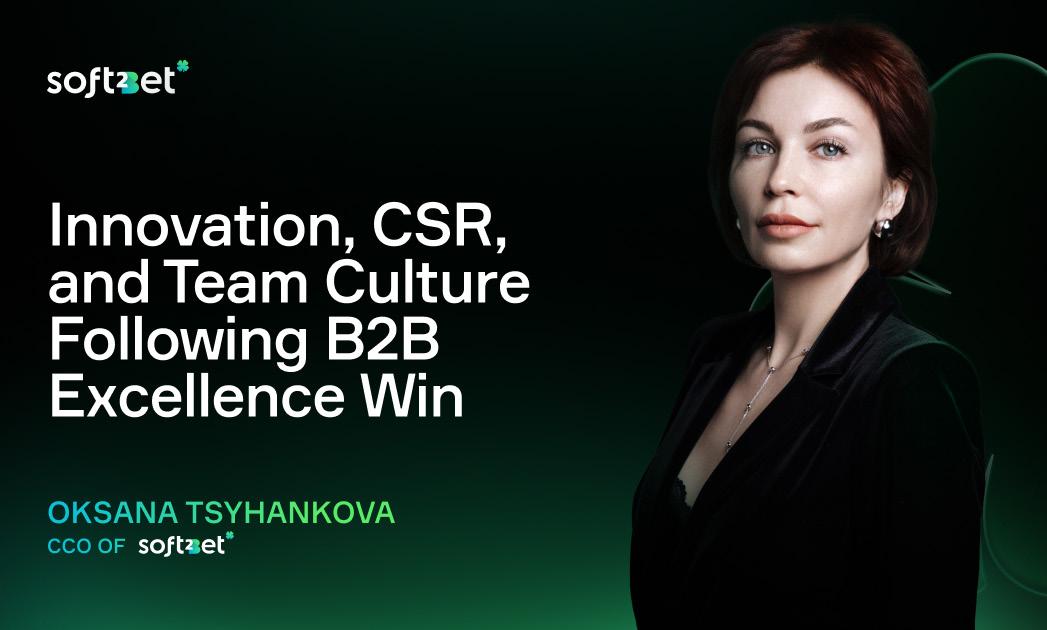
-mitment to meaningful localisation, long-lasting partnerships, and genuine community engagement drives this success. Instead of merely entering new markets, we actively shape them, creating unique player experiences that set new benchmarks in the local industry.
How does Soft2Bet approach corporate social responsibility, and why is it important for your business?
Corporate social responsibility genuinely influences how we operate and make decisions every day. Over the past year, we’ve actively supported causes that resonate with our values, emphasising employee well-being and professional development. Examples include our Women’s Day panel initiative and our donation supporting gender equality and community development.
Additionally, we take practical steps to protect the environment, build closer connections within local communities,
and support sustainable growth in the iGaming industry through educational activities such as webinars, workshops, keynotes, panels, and roundtable discussions.
What role does innovation play in Soft2Bet’s strategy, especially with recent technological partnerships like AWS?
Through our S2B Invest Fund, we actively support projects designed to meet customer needs and define future industry trends. By prioritising innovative gamification, exceptional UI/UX design, and social experiences tailored to local audiences, we enable our partners to stay ahead of changing player expectations.
Innovation is central to everything we do at Soft2Bet. Over the past year, our MEGA gamification engine has earned significant global recognition for its outstanding performance in both sportsbook and casino.
How does Soft2Bet’s team
and culture contribute to your leadership in the iGaming space?
Our success comes from a global team of dedicated individuals who contribute bold ideas, technical expertise, and a genuine commitment to growth. We’ve created an inclusive and innovative culture that empowers people from diverse backgrounds to excel and confidently take on leadership roles.
Our rapid growth across multiple markets directly reflects the dedication and skill of our compliance, product, and marketing teams, as well as our commitment to meeting strict licensing standards. Alongside our internal achievements, we actively support the wider industry through educational content, including workshops, webinars, and roundtable discussions, which aim to raise standards and promote responsible, sustainable growth within the iGaming community.


Wynn Resorts ambitious project on Al Marjan Island, located in the United Arab Emirates’ Ras Al Khaimah. Has so far cost the company $741.1 million into this venture, which is set to open in 2027.
Wynn Resorts’ financial commitment to the Al Marjan Island project has steadily increased, with an additional $58.2 million injected during the first half of the year.
The Al Marjan Island development is poised to be a landmark project, featuring a luxurious casino, hotels, and various entertainment options. Once completed, Wynn Resorts will hold a 40% stake in this groundbreaking venture, which is expected to attract both local and international tourists.
In its recent quarterly results, Wynn
Resorts reported revenues of $1.74 billion, a slight increase from $1.73 billion in the same period last year. However, net income saw a decline, dropping to $66.2 million from $111.9 million. The company’s earnings before interest, taxes, depreciation, and amortisation (EBITDA) also fell to $552.4 million, down from $671.7 million in the previous year.
The performance of Wynn’s various locations reveals a mixed bag. While the Wynn Palace in Macau experienced a revenue decline of $8.4 million, Wynn Macau saw an increase of $6.5 million. Las Vegas operations reported a rise of $10 million, and Encore Boston’s revenue grew by $3.1 million.
Craig Billings, the CEO of Wynn Resorts, expressed optimism regarding the company’s performance. He noted that the results reflect ongoing
strength across the business, particularly in Las Vegas, where a new record for adjusted EBITDA was achieved in the second quarter. Billings acknowledged the challenges in Macau, particularly the impact of VIP hold on results, but highlighted the company’s ability to generate healthy market share and significant free cash flow.
Billings also provided updates on the Al Marjan Island project, stating that construction is progressing well, with the team currently pouring the 61st floor of the tower. Additionally, key partnerships have been established with food and beverage providers, and agreements have been reached with several high-profile retail tenants, further enhancing the project’s appeal.



Philippine lPresident Ferdinand Marcos Jr, says that a complete ban on online gambling could inadvertently fuel illegal operations, the online gambling sector in the Philippines has witnessed huge growth over the past few years. With the rise of digital platforms, the industry has attracted both local and international players, contributing significantly to the economy. The Philippine Amusement and Gaming Corporation (PAGCOR) has reported substantial revenues from licensed online gambling operators, which have become a vital source of government income.
Despite its economic benefits, the online gambling industry has faced increasing scrutiny. Lawmakers and religious groups have raised concerns about the potential for addiction, particularly among vulnerable populations such as minors and low-income families. The call for stricter regulations has intensified, with many advocating for a complete ban on online gambling to mitigate these risks.
In a recent interview, President Marcos expressed his apprehension that a total ban on online gam -
bling could lead to a surge in illegal gambling activities. He argued that pushing the industry underground would make it more challenging to regulate and control. This perspective highlights the potential unintended consequences of a blanket prohibition, which could exacerbate the very issues lawmakers aim to address.
Marcos emphasised the importance of crafting a balanced policy that addresses the social implications of gambling without resorting to outright bans. He proposed convening a conference with stakeholders to develop strategies that protect vulnerable groups while allowing the industry to operate within a regulated framework.
In response to the growing concerns surrounding online gambling, the Philippine central bank has announced plans to implement stricter regulations for financial institutions involved in gambling transactions. These measures aim to enhance safeguards against gambling-related harm.
One of the primary objectives of any regulatory framework should be the
protection of vulnerable populations. This includes implementing age verification measures to prevent minors from accessing online gambling platforms and providing support services for individuals struggling with gambling addiction.
As the debate over online gambling continues, it is crucial for all stakeholders, including government officials, industry leaders, and community representatives, to engage in constructive dialogue. Collaborative solutions that address the concerns of all parties involved will be essential for the sustainable development of the online gambling industry in the Philippines.
Any regulatory framework established must include provisions for ongoing monitoring and evaluation. This will ensure that the measures implemented are effective in addressing the social and economic impacts of online gambling while allowing the industry to thrive within a controlled environment.

Elantil, who is fast approaching its first year of operation, Clever Duck Media caught up with the company’s Chief Commercial Officer, Nadiya Attard, to recall some of the major milestones from the past 12 months and outline the group’s ambitions for the future.
Looking back at Elantil’s first year, it’s amazing to see how much we’ve accomplished. Since bringing on our first customer in September 2024, we’ve stayed committed to our mission: offering a flexible platform that works across fiat, crypto, and other markets. Just one year later, we’re proud to be one of the most talked-about names in the industry, with support from both operators and suppliers.
On top of that, there’s more exciting news: earlier this month, we helped Goatz.com launch their vibrant new casino-a visually dynamic, player - centric brand packed with rewarding programs. Powered by Elantil’s platform, this launch was a major win for our team and a fantastic example of how quickly and confidently our partners can go live. Having worked as both a platform pro -
vider and an operator, the Elantil team understood the common challenges clients faced - and set out to build a completely new solution to solve them.
Over the past two decades, industries like music, cinema, and banking have completely reinvented themselves. Music went from CDs to iTunes to Spotify in just under 15 years. Cinema left behind box office queues for
Netflix and on-demand streaming. Banking embraced instant payments, open banking, and fintech innovation — all before AI even took centre stage.The launch of Apple’s App Store revolutionised distribution by making new products instantly accessible to millions, transforming how software reaches users worldwide.
Meanwhile, iGaming still largely runs
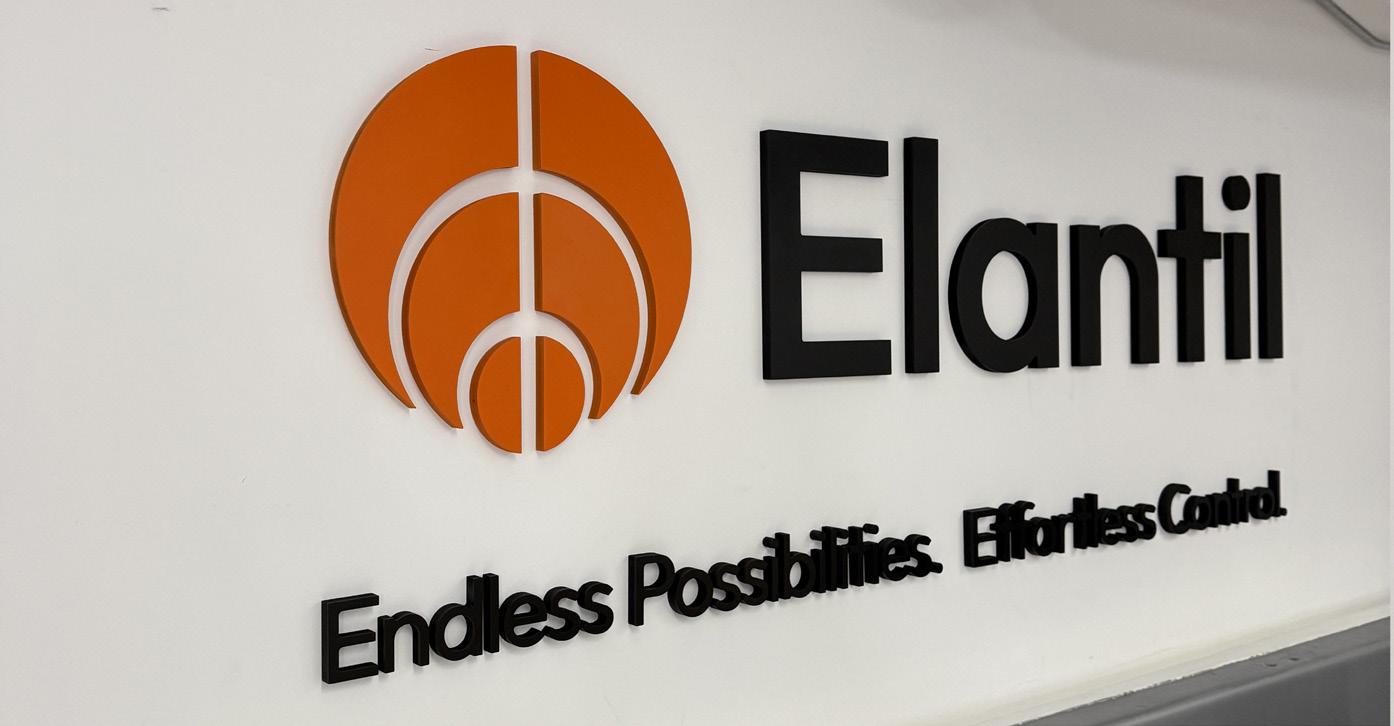

on legacy platforms — systems built for a pre-mobile, pre-crypto and pre-regulation world. They’re slow to evolve, locked into rigid architectures, and often more focused on preserving outdated revenue models than delivering great user experiences.
When I stepped into the role of Chief Commercial Officer at Elantil, it was just as we onboarded our first operator. My mission was clear: to bring into iGaming the kind of Elantil’sinnovation that’s already reshaped fintech — from Revolut-style flexibility to marketplace modelsthat
give operators instant access to any third-party supplier, with minimal cost and maximum speed. While Elantil’s founders recognized the limitations of legacy iGaming tech and set out to fix the pain points they knew too well, I identified clear ways to unlock revenue through smarter innovations that drive measurable commercial growth and deliver real value for the entire ecosystem.
In a market weighed down by outdated platforms and slow
innovation, Elantil brings a breath of fresh air — a technology-first approach designed to meet today’s fast-changing demands. Our platform is built from the ground up to break free from the limitations of legacy systems and empower operators to move at the speed of modern gaming.
Here’s how Elantil delivers that advantage:
• API-first, modular architecture — Unlike traditional monolithic platforms, Elantil is built with a flexible, modular design. This means operators can easily plug in new features or thirdparty services without overhauling entire systems, eliminating bottlenecks and speeding innovation.
• Multi-wallet, multi-currency support (including crypto) — Whether your players want to use fiat currencies or any cryptocurrencies, Elantil offers seamless wallet management and currency flexibility. This instant adaptability empowers operators to serve diverse markets and meet evolving player preferences without delay.
• Real-time data and insights — In a fast-moving market, waiting for weekly reports isn’t good enough. Elantil delivers real-time analytics and actionable insights, enabling operators to make smarter decisions on the fly — from personalising player experiences to adjusting risk and marketing strategies immediately.
• Rapid integration —While legacy platforms can take months to implement changes, Elantil’s streamlined onboarding means new suppliers – whether its casino providers, aggregators, sportsbooks, payments or CRMs - can be integrated in hours or days. This speed provides a critical competitive advantage, allowing clients to react swiftly to

market shifts and opportunities, much like how the Apple App Store revolutionised software distribution by making new apps instantly accessible to millions.
In every industry where disruption has taken hold — from music streaming to digital banking — success came from those bold enough to challenge the status quo and rethink what’s possible. iGaming has been held back for too long by outdated technology and rigid systems. The industry is primed for its own Spotify moment, where flexibility, speed, and innovation redefine the experience.It’s the iGaming equivalent of the Apple App Store — plug in what you need, when you need it, without rebuilding the whole system. This speed provides a critical competitive advantage, allowing clients to react instantly to market shifts, test new ideas, and seize opportunities before competitors have even finished their planning decks.
Elantil is not just part of this change — we’re working towards leading it. Our platform is designed to empower operators to move fast, adapt effortlessly, and unlock new revenue streams in a way no legacy system can match. The future of iGaming is flexible, dynamic, and player-centric. And with Elantil, that future is happening now.
Just two months ago, we were honoured to receive the Innovator of the Year award at the Women In Gaming Diversity Awards—a testament to the progress we’ve made. This recognition drives us to push the boundaries of what’s possible and continually enhance our platform.
We’re currently pursuing GLI 19, GLI 33, and ISO certifications, with plans to expand into regulated markets.At the same time our platform’s multi-currency support makes us already today an ideal choice for cryptocurrency casinos, a sector we’re keen to grow further.
Elantil is also pioneering multi-bonusing— the ability for players to claim and use multiple bonuses simultaneously, a feature unmatched in the market. This innovation will be a key advantage as we expand our customer base.

With three customers live after our first year, we’re focused on building momentum and will be showcasing our latest features at SBC Summit Lisbon, September 16–18, 2025, at stand B450.
At the core of Elantil’s success is our experienced and dedicated team. Bringing together deep expertise from iGaming, fintech, and technology sectors, our team combines passion with innovation to overcome industry challenges. Their commitment and diverse skill set are the driving force behind our ability to deliver cutting-edge solutions and scale rapidly in a competitive market.
With a strong product roadmap, new markets on the horizon, and more suppliers joining our Marketplace every month, we’re excited about the future and the quality solutions we can offer our customers. We’re proud of what we’ve achieved so far and remain committed to driving disruptive innovation that will prepare the iGaming industry for the decades ahead.
To find our more about Elantil visit: https://elantil.com/





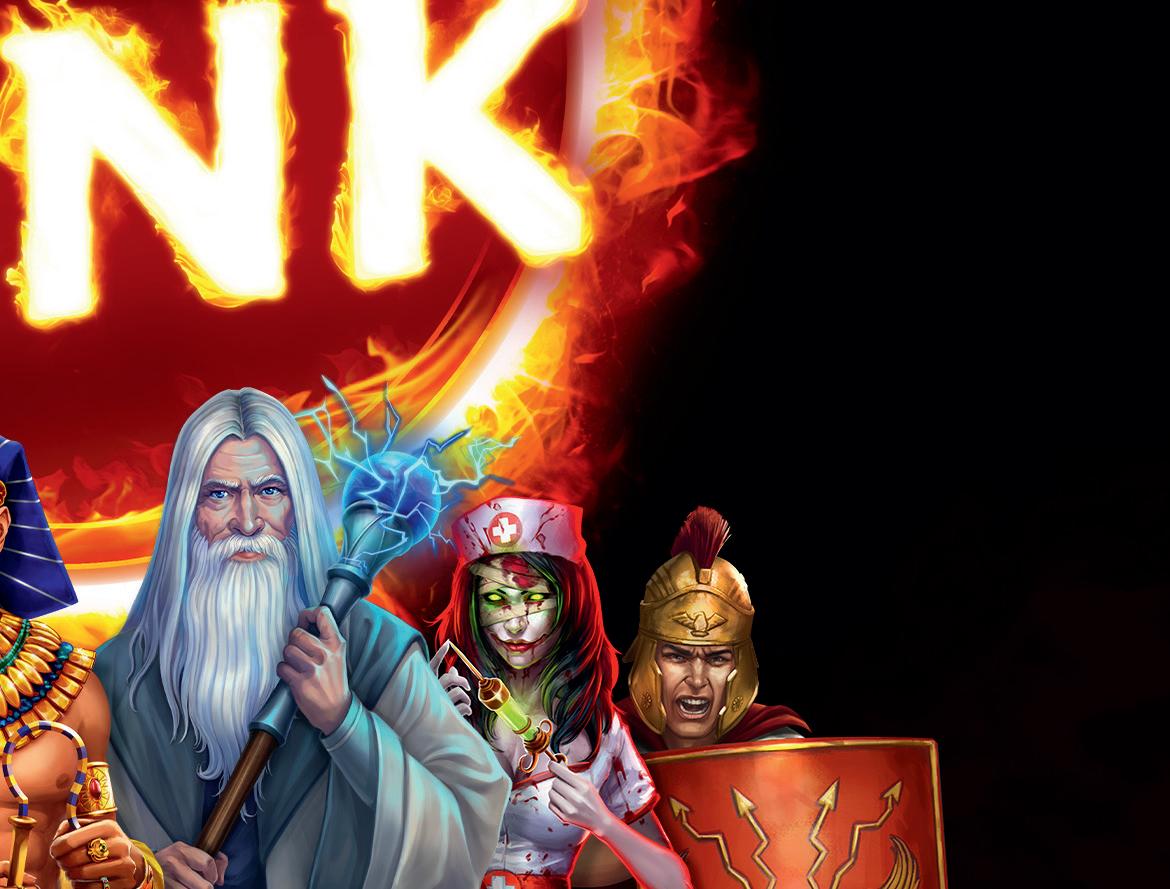



Acoalition of 50 state attorneys general has united in a call for the U.S. Department of Justice (DOJ) to intensify its efforts against illegal offshore gambling sites. This bipartisan group, led by Utah Attorney General Derek Brown, has expressed deep concerns regarding the proliferation of unregulated offshore gaming platforms that threaten the integrity of gambling laws across the nation.
The attorneys general have highlighted that illegal offshore gambling has reached alarming levels, with estimates suggesting that the industry generates over $400 billion annually. This figure shows the urgent need for regulatory intervention. The lack of oversight not only jeopardises consumer protection but also results in significant tax revenue losses for states, amounting to over $4 billion each year they say.
The letter sent to U.S. Attorney General Pam Bondi outlines the myriad risks posed by these illegal opera -
tions. Many of these platforms operate without the necessary licenses, fail to implement adequate consumer protections, and often neglect to verify the age of their users. This lack of regulation exposes vulnerable individuals to potential fraud and addictive behaviours, raising serious public health concerns.
The coalition of attorneys general has pointed out that since 2013, enforcement actions by the DOJ against illegal offshore gambling sites have been notably sparse. They are urging the DOJ to leverage its legal authority to take decisive action against these unlawful enterprises. The letter emphasises the need for a coordinated effort to deploy robust legal tools to dismantle these operations effectively.
The attorneys general have proposed that the DOJ utilise its powers to seize assets associated with illegal gambling, including servers and domains. They have also suggested collaborating with major payment proces -
sors, such as Visa and Mastercard, to restrict these companies’ access to the U.S. financial system.
The attorneys general have raised alarms about the connection between illegal online gambling and other criminal activities. These operations are often linked to money laundering, human trafficking, and other serious crimes. The unchecked nature of these platforms not only undermines state laws but also poses a direct threat to public safety.
Attorney General Brown has articulated the detrimental effects of illegal offshore gaming on local communities, particularly in Utah. He emphasised that these foreign-based operations not only foster gambling addictions but also inflict harm on consumers who are left unprotected. The coalition believes that a united front against these illegal activities is essential to safeguarding the wellbeing of residents across all states.



The introduction of an Online Gambling Bill in New Zealand has sparked significant concern among various sporting organizations. They argue that the proposed legislation poses a serious threat to grassroots sports funding, which has traditionally relied on community gambling grants. Prominent figures in the sporting community are voicing their apprehensions, urging the government to reconsider the implications of this bill.
Martin Snedden, the chair of Cycling New Zealand, has been vocal about the potential repercussions of the Online Gambling Bill. He emphasizes that community sports have thrived for decades due to the financial support derived from gambling grants. Snedden argues that the proposed legislation could jeopardize this funding, which is crucial for local clubs and amateur sports.
One of the most significant criticisms
from sporting bodies is the apparent lack of consultation with the sports sector prior to the bill’s introduction. Snedden expressed his dismay at the absence of dialogue, stating that the government failed to provide any warning about the impending changes. This lack of communication has left many in the sporting community feeling blindsided and unprepared for the potential fallout.
The timing of the bill’s introduction has also raised eyebrows. With many clubs already grappling with rising operational costs, dwindling sponsorship opportunities, and reduced support from local governments, the proposed changes could exacerbate existing challenges. Snedden and other leaders in the sporting community are urging the government to reconsider the bill’s design, advocating for a return to earlier drafts that included provisions for international operators to contribute to community funding.
In defence of the Online Gambling Bill, some government officials argue that the legislation is necessary to protect New Zealanders from unregulated offshore gambling sites. The bill aims to establish a framework that ensures player safety standards and oversight for harm minimization. Supporters of the bill, including Associate Minister of Sport, Chris Bishop, believe that regulating online gambling will ultimately benefit consumers.
Another argument in favour of the bill is the potential for increased tax revenue from regulated online gambling operators. Proponents assert that this revenue could be directed toward funding services that address gambling-related harm in New Zealand. The government aims to strike a balance between allowing online gambling and ensuring that it is conducted safely and responsibly.

LinkedIn has transformed from a straightforward professional networking site into a platform that often feels more like a stage for personal storytelling than a space for business & career advancement.
Initially LinkedIn served as a digital resume, allowing users to showcase their professional achievements and connect with potential employers. However, the onset of the pandemic blurred the lines between personal and professional lives, leading many users to share more personal anecdotes. This shift has resulted in a flood of posts that often prioritise emotional storytelling over professional updates.
However during the Covid lockdown, the platform saw an increase in posts detailing personal struggles, triumphs, and life lessons. While this trend aimed to humanise professional interactions, it has also led to a culture of oversharing. Many users now feel compelled to share intimate details of their lives,
often in the form of lengthy narratives that can detract from the platform’s original purpose.
The trend of sharing personal stories has led to some cringe-worthy moments on LinkedIn. Posts that once might have been considered inappropriate for a professional setting are now commonplace. For instance, some users have shared emotional selfies or detailed their experiences with redundancy in a manner that feels more self-indulgent than informative.
The quest for engagement has further exacerbated this issue. Posts that garner thousands of likes often feature dramatic personal stories or emotional
appeals. This has created a feedback loop where users feel pressured to share increasingly sensational content to maintain visibility and engagement on the platform.
In 2021, LinkedIn introduced “Creator Mode,” a feature designed to help users grow their audience and increase engagement. While this feature has empowered many to share their insights and expertise, it has also contributed to the oversaturation of personal narratives. Users are incentivised to create content that is more about personal branding than professional development.
The Influence of Algorithms
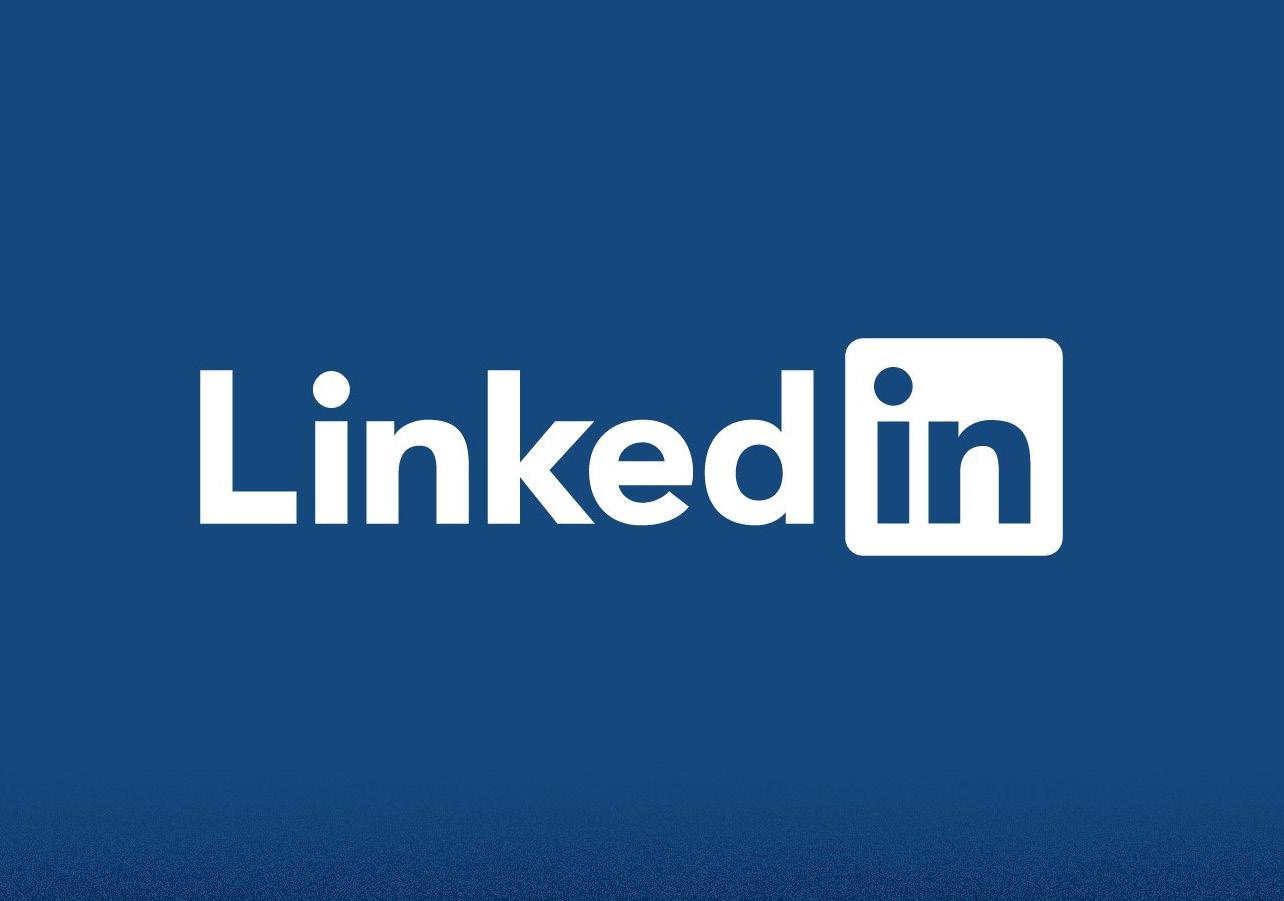
LinkedIn’s algorithms favour posts that generate high engagement, often promoting content that is more sensational than substantive. This has led to a situation where users are rewarded for sharing personal stories rather than professional insights, further shifting the platform’s focus away from its original intent.
While authenticity is increasingly valued in today’s workplace, there is a fine line between being genuine and oversharing. Professionals must navigate this delicate balance, as excessive personal disclosures can lead to reputational risks. For instance, sharing too much about personal struggles or workplace grievances may not be well-received by potential employers or colleagues.
Oversharing can also lead to misinterpretation. A post intended to showcase vulnerability may be perceived as unprofessional or attention-seeking. This can have lasting consequences for one’s professional image, making it crucial for users to consider the potential impact of their posts before hitting “publish.”
To maintain professionalism on LinkedIn, users should establish clear boundaries regarding what personal information they choose to share. This involves being selective about the stories they tell and ensuring that their content aligns with their professional goals.
Instead of sharing personal anecdotes
for the sake of engagement, professionals should aim to provide value through their posts. This could involve sharing industry insights, offering career advice, or discussing professional achievements in a way that inspires others without delving into personal territory.
The gambling industry has been a longtime presence on LinkedIn, however over recent months users have constantly complained of the input LinkedIn in showing along with older posts appearing more regulary.
The danger LinkedIn has is that there will always been competitors waiting to jump in to fild a void created by LinkedIn, going forward the platform has to remember who its core customers are.


Top-performing and game-changing Money Gong™ Multi-Level Progressives that’s rocking performance charts in EMEA! Incorporating innovative mechanics, exciting bonus boosters and massive jackpots players seek.
GambleAware has announced its intention to wind down operations by March 31, 2026. This decision comes as part of a broader shift within the UK health system, which is moving towards a statutory framework aimed at addressing gambling-related harms more effectively.
The UK government is transitioning to a public health-led system for managing gambling harms, which will be overseen by NHS commissioners across England, Scotland, and Wales. This new framework is designed to ensure that gambling support services operate independently from the gambling industry, addressing longstanding concerns about potential conflicts of interest.
GambleAware has been a leading player in the UK’s gambling support network since its inception in 2002. Initially established as the Gambling Industry Charitable Trust, it later rebranded as the Responsible Gambling Trust and finally as GambleAware. Over the years, the organization has focused on commissioning research, education, and treatment initiatives aimed at reducing gambling-related harms.
With the introduction of a statutory levy and the appointment of new commissioners for gambling harms research, prevention, and treatment, GambleAware’s historical role will be phased out. Andy Boucher, Chair of Trustees, emphasized that the charity has fulfilled its responsibilities in preparing for this transition, advocating for a statutory system for many years.
Since 2017, GambleAware has played an important role in developing a harm-reduction system through its

commissioning of various prevention, treatment, and support services. The National Gambling Support Network (NGSN), which GambleAware helped establish, has provided vital resources to those affected by gambling harms.
GambleAware’s initiatives have supported tens of thousands of individuals annually, while national prevention campaigns have reached millions, offering tools and advice to mitigate gambling-related risks. The charity’s commitment to public health has been a cornerstone of its operations, and its legacy will continue to influence future strategies in gambling harm management.
As GambleAware prepares for its closure, it remains committed to honouring its commissioning agreements until April 2026. This approach aims to ensure that beneficiaries continue to receive the support they need during the transition period. Boucher reassured stakeholders that critical prevention resources and the GambleAware website will remain accessible throughout this time.
Baroness Twycross, the Minister for Gambling, acknowledged GambleAware’s contributions and emphasized the government’s commitment to a smooth transition. The new statutory system aims to build on the successes of the existing framework while expanding efforts to understand and address gambling harms more effectively.
The statutory levy will be funded through mandatory contributions from gambling operators, marking a significant shift from the previous voluntary funding model. This change is expected to enhance the sustainability and effectiveness of gambling harm support services across the UK.
The primary objective of the new system is to improve and expand efforts to tackle harmful gambling. By recognizing gambling harms as a public health issue, the government aims to integrate these concerns into broader health initiatives, ensuring that individuals affected by gambling receive the necessary support.
Game aggregation has grown faster than the overall casino business over the last several years. This growth makes sense given the huge rise in game suppliers and content providers in the market. The digital world has changed as many innovative game studios have emerged and thrived. New markets have also pushed the development of local content.
Casino operators can’t directly integrate with every game studio anymore - it’s just not technically possible. The slot distribution sector has become more competitive as supplier numbers keep rising. These platforms have become the foundation for technical solutions that help operators access gaming content through a single integration point.
Game aggregation platforms give operators several key advantages. They provide quick access to innovative content that’s perfect for specific target markets. On top of that, these platforms help with market entry by handling relationships and regulatory
requirements, especially when you have regions like the United States that need big investments. The platforms also offer great certification services that make launches in regulated markets more efficient.
This piece tucks into everything in game aggregation for operators, from integration workflows to performance factors. You’ll learn about navigating one of the most competitive parts of the online gambling industry.
When Should an Operator Use a Game Aggregation Platform?
Operators must evaluate internal capabilities against business objectives before implementing game aggregation platforms. Several operational factors determine whether aggregation offers the optimal approach.
Evaluating internal dev capacity vs aggregator support
Casino operators underestimate technical complexity in direct integrations. Each game provider employs different API protocols, requiring specialised development knowledge and substantial resources. This challenge intensifies as operators scale content offerings.


Technical teams face a critical assessment: can resources support multiple simultaneous integrations and ongoing maintenance?
Larger operators with established development departments might manage direct integrations. Smaller teams discover that maintaining dozens or hundreds of separate integrations becomes unsustainable.
Game aggregators handle these complexities through single entry points for content-related issues. Dedicated account and developer teams assist throughout integration processes. Aggregators check provider logs, submit technical queries, and manage providerspecific nuances. Operators redirect internal resources toward core functions – marketing and customer service.
Assessing market entry speed and content needs
Market entry timing determines
aggregation strategy. Robust game libraries impact initial player acquisition significantly. Direct integrations offer control but extend timelines considerably.
Single API integrations through aggregators accelerate deployment – platform launches within weeks rather than months. Quick-tomarket approaches prove valuable in competitive jurisdictions where early presence provides advantages.
Content diversity requirements influence decisions. Aggregators provide thousands of games from hundreds of studios through single integrations. Operators experiment with game types to identify player demographic preferences. Aggregators continuously update provider libraries with latest releases – content remains fresh without additional development resources.
Cost-benefit analysis of direct vs aggregated integration
Financial equations demand thorough analysis. Aggregators charge markup fees but secure lower rates through volume-based negotiating power. They negate expensive setup fees from premium studios.
Direct benefits include:
Elimination of platform fees or revenue shares to aggregators
Complete control over integration processes and feature implementation
Custom commercial terms through direct negotiation
Aggregation advantages include:
Lower resource allocation for technical implementation and maintenance
Reduced administrative burden through centralised relationship management
Access to built-in marketing tools including jackpots, tournaments and free spins
Smaller operators find direct integration financially unrealistic due to resources required for complex regulatory landscapes across multiple markets. Larger operators with established distribution networks might benefit from transitioning to direct
control once achieving sufficient scale.
Platform selection demands evaluation of technical features that impact operational efficiency and player engagement directly. Successful integration requires platforms with robust functionality across key areas.

Multi-provider support with single API
Game aggregation platforms function as centralised hubs consolidating thousands of games from various providers into unified systems. Single API integration grants operators access to extensive game libraries ranging from 10,000 to 35,000 titles from hundreds of providers—some platforms connecting to more than 175 game studios. Technical consolidation eliminates separate contracts and individual implementations with each provider.
Implementation speed and resource efficiency provide core advantages. Operators allocate resources for one API connection rather than dedicating technical teams to multiple integrations. All game content becomes accessible through this single entry point, with aggregators handling data formatting complexities, protocol alignment, and ongoing maintenance.
Administrative efficiencies emerge through eliminated provider relationship management. Aggregators serve
as sole contact points for resolving all game-related technical issues, streamlining initial setup and ongoing operations.
Built-in marketing tools: jackpots,
tournaments, free spins
Modern aggregation platforms extend beyond basic content delivery through sophisticated marketing capabilities. Built-in promotional tools include

tournament systems enabling competition across multiple game titles—some platforms report up to 22% increases in average daily bets per user when implementing tournament features.
Additional tools comprise customisable jackpot engines triggering rewards across selected games, free spin mechanisms simplifying bonus distribution, and loyalty programmes with achievement tracking and reward systems.
Advanced platforms now support non-monetary prizes alongside traditional cash rewards. This flexibility enables tailored promotional campaigns targeting specific player segments with relevant incentives—luxury cars and trips through branded merchandise.
Tool implementation requires minimal technical effort through platform back office interface

configuration. Players see promotional information seamlessly displayed within casino interfaces without additional integration work
Real-time analytics and reporting dashboards
Analytics capabilities represent crucial components of advanced aggregation platforms. Systems provide detailed visibility into performance metrics, updating at intervals from real-time to every 30 minutes.
Effective dashboards offer game performance analytics tracking individual title metrics across player segments, player behaviour analysis showing engagement patterns and preferences, geographic performance breakdowns for market-specific optimisation, and financial reporting with detailed transaction histories.
These tools enable data-driven decisions about game positioning, promotional strategies, and content selection. Operators identify which games perform best with specific player segments or determine optimal bonus structures based on historical performance data.
Some platforms offer additional reporting granularity through raw event analysis capabilities, allowing examination of individual player journeys and specific transaction details. This insight proves invaluable for troubleshooting issues and identifying optimisation opportunities across gaming portfolios.
Game aggregation platform implementation requires several technical stages from initial setup to production deployment. Technical
teams must prepare for integration journeys whilst setting realistic project timelines.
Sandbox testing and staging environment setup
Proper testing environments form the foundation of successful game aggregation integration. Sandbox environments provide isolated virtual spaces for experimenting with new features and configurations without affecting live systems. Technical teams validate functionality, security, and performance prior to deployment.
Testing begins with sandbox access provided by aggregators, enabling developers to experiment with API calls and game launches in risk-free settings. Operators should establish formal staging environments that mirror production environments as closely as possible. This staging area serves as final testing ground before going live:
Test game launches across different devices and browsers
Validate payment processing flows
Ensure promotional tools function correctly
Verify game performance under simulated load conditions
Advanced aggregators offer builtin development environments that simplify this process. Some platforms use dual-environment systems where all changes must first be tested in Stage before merging into Live environments.
Game certification and jurisdictional compliance checks
Regulated market launches require

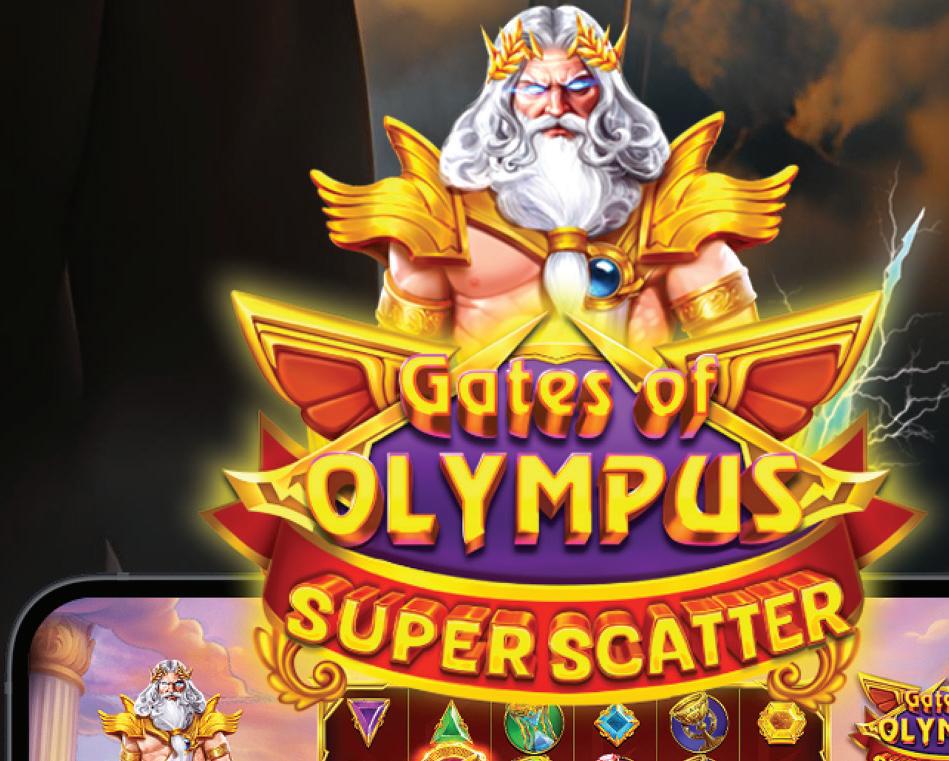
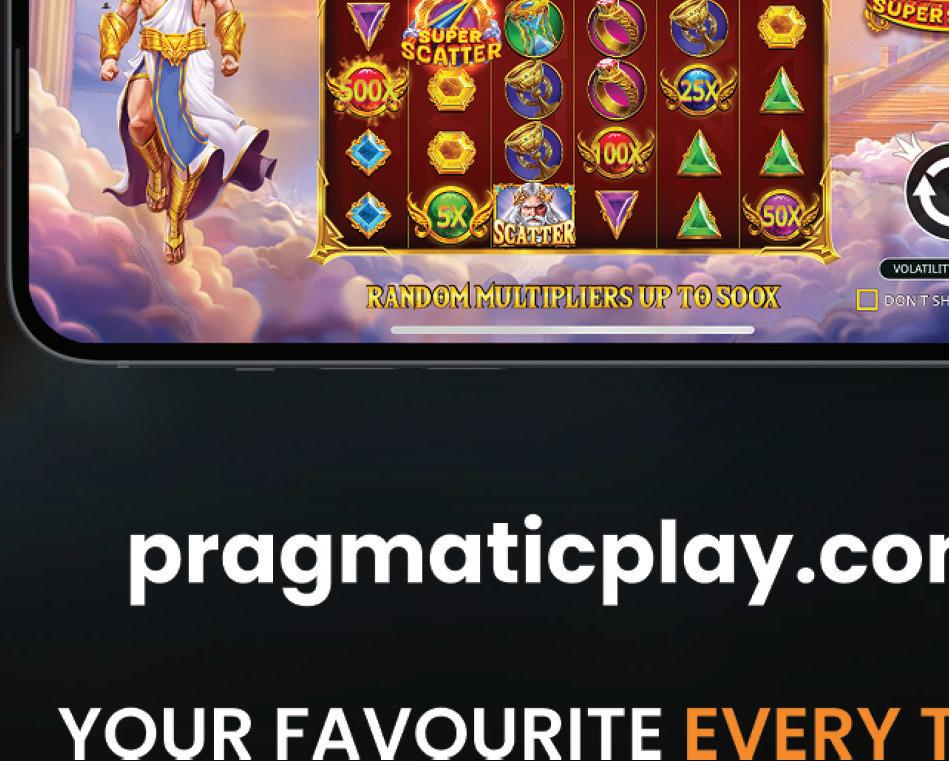

complex certification processes that vary by jurisdiction. Game aggregation platforms streamline this by obtaining market-wide certifications for entire content portfolios.
Leading aggregators invest heavily in securing market certifications. SOFTSWISS obtained Brazilian certification for its Game Aggregator, alongside integration certifications for major providers like Pragmatic Play, Evolution, and Playtech. The company secured Peruvian market certification through GLI, an accredited testing laboratory.
These certifications ensure games meet technical and legal requirements set by local authorities. This grows increasingly important as jurisdictions implement regulatory frameworks requiring formal certification by specific deadlines –Peru’s revised Regulatory Framework requires certification by January 2025.
Monitoring tools for uptime and content delivery
Robust monitoring capabilities become crucial for maintaining operational excellence once live. Effective game aggregation platforms provide monitoring tools that function as digital watchdogs, checking systems around the clock and alerting operators to potential issues.
These monitoring systems typically offer:
Real-time performance metrics tracking game availability
Automated alerts for service disruptions
Detailed insights into player behaviour and game performance
Proactive monitoring that identifies potential issues before affecting players
Advanced platforms deliver monitoring through robust back-office systems that provide operators with detailed analytics dashboards. These interfaces enable technical teams to track critical metrics like game popularity, player session lengths, and revenue per game – facilitating data-driven decisionmaking throughout content lifecycles.
Operators require evolving aggregation strategies beyond current capabilities to maintain competitive positions. Technical adaptation demands understanding emerging trends reshaping gaming content delivery.
Supporting Web3 and blockchainbased games
Blockchain technology enables true asset ownership and decentralised gaming experiences. Leading aggregators facilitate Web3 game integration offering play-to-earn models where players gain complete ownership of content, data and assets. Aggregation platforms must support multiple blockchains simultaneously – unique technical challenges emerge. Specialised GameFi wallets handle multi-chain deposits and NFT asset management, whilst simplified discovery portals streamline onboarding.
length and betting patterns to recommend personalised gaming experiences. Aggregators dynamically position games based on regional performance data – popular titles gain prominence whilst underperforming content sees reduced visibility. Content production benefits from AI tools like Ubisoft’s Ghostwriter accelerating narrative development.
Expanding to new verticals: crash, skill-based, and hybrid games
Crash games feature climbing multipliers where players cash out before crashes occur – riskreward mechanics create tension. Successful integration requires social features including leaderboards, chat functionality and tournament capabilities. Hybrid formats blending multiple game elements show particular promise, with footballthemed crash games demonstrating retention rates exceeding 25%.
Game aggregation transforms how casino operators access gaming content. This guide covered implementation through future technologies.
Direct integration versus aggregation platforms demands analysis of internal capabilities, market timing, and costs. Smaller operators benefit from streamlined aggregation approaches. Larger entities might transition to direct integrations after achieving scale.
Preparing for AI-driven content personalisation
AI market projections reach $8.29 billion by 2029. Sophisticated systems analyse player preferences, session
Technical features determine platform effectiveness. Single API integration reduces development complexity, whilst marketing tools enhance engagement through tournaments and promotions.



Nottingham Forest has announced a partnership with Bally’s Corporation, the collaboration comes just a year before the Premier League enforces a ban on front-of-shirt gambling sponsorships, making this deal one of the last of its kind in the league.
Bally’s Corporation, which is headquartered in the United States, operates over 20 casinos and resorts across both the US and the UK. As part of this agreement, the Bally’s logo will be prominently displayed on the shirts of Nottingham Forest’s men’s first team throughout the 2025/26 season. Additionally, the branding will feature across various signage at the City Ground.
This partnership is significant not only for Nottingham Forest but also for Bally’s, as it allows the company to engage with a vast audience. The Premier League boasts a global fanbase, and this collaboration provides Bally’s with a unique opportunity to connect
with supporters both locally in Nottinghamshire and internationally.
Nottingham Forest’s owner, Evangelos Marinakis, expressed enthusiasm about the partnership, stating, “We are on a special journey – we are determined to keep achieving incredible things and strengthening our global partnerships is an important part of this.” This sentiment underscores the club’s ambition to enhance its commercial relationships while continuing to grow its fanbase.
The decision to partner with Bally’s comes at a crucial time for Nottingham Forest, which is gearing up for its fourth consecutive season in the Premier League. The club is also set to return to European competition for the first time in three decades, making this sponsorship particularly timely.
However, the landscape of gambling sponsorships in football is changing. Following a collective decision by all
Premier League clubs in April 2023, a ban on front-of-shirt gambling sponsorships will take effect from the 2026/27 season. While clubs can still display gambling branding on sleeves and within stadiums, the shift indicates a growing awareness of the potential risks associated with gambling advertising.
Nottingham Forest has a history of engaging with gambling brands. In the early 2000s, the club had a brief partnership with Victor Chandler, and more recently, it featured brands like BetBright on training wear and around the stadium. Last year, Forest signed a long-term agreement with Betway, which became its official betting partner. The latest deal with Bally’s marks the club’s first front-ofshirt gambling sponsor in the Premier League era.
Bally’s Corporation is actively expanding its footprint in the UK market ahead of the impending restrictions on gambling sponsorships. The company recently acquired Aspers Casino in Newcastle and secured a multi-year deal to operate the Monopoly gaming licence across various territories, including the UK, Spain, Canada, and the US.
Bally’s Interactive, the digital arm of the corporation, is responsible for the Bally Bet sports and casino platform. The UK brand portfolio includes well-known iGaming names such as Virgin Games and Jackpotjoy. Robeson Reeves, CEO of Bally’s, remarked, “Bally’s has always been dedicated to delivering exceptional entertainment, from our renowned resort destinations to our popular gaming platforms.” This commitment to quality entertainment aligns with Nottingham Forest’s aspirations to engage its growing fanbase.
Affiliate m arketing has emerged as a potent strategy within numerous industries, with online gambling being a prominent beneficiary. At its core, the affiliate marketing model involves partnerships where affiliates promote a company’s products or services and earn a commission for driving traffic, leads, or sales. This model is symbiotic, benefiting both the business and the affiliate, as it leverages the affiliate’s audience to reach potential new customers.
I n the online gambling sphere, affiliates are particularly crucial due to the competitive nature of the industry. They use various digital marketing channels such as websites, social media, and email marketing to attract players to gambling platforms. The model operates on a performance-based structure, which means affiliates are only compensated when the referred user performs a specific action, such as signing up or making a deposit.
U nderstanding the nuances of this model is essential for businesses within the gambling sector. Affiliates act as intermediaries who bridge the gap
between online casinos or betting sites and potential players. By harnessing their influence and reach, gambling operators can enhance brand visibility and customer acquisition in a costeffective manner.
A ffiliates play a pivotal role in the online gambling industry by acting as a critical link between gaming operators and players. Their influence extends beyond mere customer referral; they are instrumental in shaping brand perception and trust among potential users. Affiliates often provide detailed reviews, guides, and recommendations, which help users make informed decisions about which gambling platforms to engage with.
M oreover, affiliates significantly contribute to the diversity and richness of content available to potential players. Through their blogs, vlogs, and forums, they create a vibrant ecosystem where users can find information tailored to their interests, whether it be sports
betting, online casinos, or poker. This content not only aids in attracting new users but also helps in retaining existing ones by keeping them engaged.
T he strategic placement of affiliate links and banners on high-traffic websites and social media platforms can substantially increase a gambling site’s visibility. Affiliates are adept at targeting specific demographics, ensuring that marketing efforts reach the most relevant audience. This targeted approach is crucial in an industry where regulations and user preferences can vary widely across regions.
A ffiliate marketing offers numerous advantages for businesses within the gambling sector. One of the primary benefits is cost-effectiveness. Since affiliates are paid based on performance, gambling operators can ensure that their marketing budgets are spent efficiently, with a clear return on investment. This model reduces the financial risks associated with traditional advertising methods.

Another significant benefit is the ability to tap into new markets and demographics. Affiliates often have established audiences that are diverse and global. By partnering with affiliates, gambling companies can expand their reach without the need for extensive market research or localisation efforts. This can be particularly advantageous for smaller operators seeking to establish a presence in competitive markets.
Additionally, affiliate marketing helps in building brand loyalty and trust. Affiliates, seen as unbiased third parties, often have the trust of their audience. Their endorsements can lend credibility to a gambling site, encouraging users to try new platforms. This trust factor is vital in an
industry often scrutinised for its ethical standards and practices.
Statistics reveal the substantial impact and growth of affiliate marketing within the gambling industry. According to recent reports, the global affiliate marketing industry is valued at over USD 12 billion, with a significant portion attributed to the gambling sector. This reflects the increasing reliance on affiliate marketing strategies by gambling operators worldwide.
Moreover, it is estimated that affiliates contribute to around 30% of new customer acquisitions for online
gambling platforms. This statistic underscores the effectiveness of affiliates in driving growth and expanding user bases. With the rise of digitalisation and online gaming, these numbers are expected to grow even further in the coming years.
Another compelling statistic is the high return on investment (ROI) associated with affiliate marketing campaigns. Studies indicate that for every dollar spent on affiliate marketing, businesses can expect an average return of USD 16. This impressive ROI highlights the efficiency and profitability of leveraging affiliates within the gambling industry.
Selecting the right affiliates is crucial for maximising the benefits of an affiliate marketing programme. The first step in this process is to define clear objectives and identify the target audience. This helps in finding affiliates whose audience demographics align with the brand’s goals and customer profile.
Next, evaluating the affiliate’s content quality and engagement levels is essential. Affiliates who produce authentic, high-quality content and have an engaged audience are more likely to drive meaningful conversions. Tools like Google Analytics and social media insights can provide valuable data on an affiliate’s reach and influence.
Furthermore, the reputation and credibility of the affiliate should not be overlooked. Affiliates with a strong reputation within the gambling community can offer more significant value. Conducting thorough background checks and reviewing past performance metrics can aid in selecting affiliates who align with the brand’s values and standards.
Maintaining healthy affiliate relationships is pivotal for sustained success. One of the best practices is to establish clear communication channels. Regular updates, feedback sessions, and open lines of communication help in aligning goals and expectations. Affiliates should feel valued and informed about the brand’s latest developments and marketing strategies.
Offering competitive commission structures and incentives can also enhance affiliate relationships. Affiliates are more likely to invest effort into promoting a brand if they are fairly
compensated. Additionally, timely payment of commissions builds trust and reliability, encouraging long-term partnerships.
Another best practice is to provide affiliates with the necessary tools and resources to succeed. Customised marketing materials, detailed product information, and real-time analytics can empower affiliates to create more effective campaigns. By supporting affiliates in their efforts, gambling businesses can foster a mutually beneficial relationship.
The online gambling industry is subject to stringent legal regulations, and affiliates must navigate these complexities carefully. One of the primary legal considerations is ensuring compliance with advertising standards and regulations in various jurisdictions. Affiliates must adhere to guidelines regarding responsible gambling and the portrayal of gambling activities in their content.
Moreover, transparency and disclosure are critical. Affiliates should clearly disclose their relationship with gambling operators to their audience, as mandated by advertising standards authorities in many regions. This transparency helps maintain trust with the audience and avoids potential legal repercussions.
Data protection and privacy laws are also significant considerations. Affiliates must ensure that they handle user data responsibly and comply with regulations such as the General Data Protection Regulation (GDPR) in the EU. This includes obtaining user consent for data collection and ensuring data security measures are in place.
Several successful affiliate marketing

campaigns in the gambling sector provide valuable insights into effective strategies. For instance, leveraging influencer partnerships has proven highly successful. By collaborating with influencers who have a strong following in the gaming community, gambling operators can tap into a pre-existing audience that trusts the influencer’s recommendations.
Another successful strategy involves creating high-quality, engaging content that resonates with the target audience. Affiliates who focus on producing tutorials, reviews, and livestreaming sessions tend to attract more engagement and conversions. This content-driven approach keeps the audience informed and entertained, fostering loyalty and repeat visits.
Case studies of successful campaigns often highlight the importance of personalised marketing. Affiliates who tailor their content and promotions to suit specific audience preferences and behaviours achieve better results.

This personalised approach makes the marketing message more relevant and compelling, leading to higher conversion rates.
At the London Gaming Congress in March leaders from the Affiliate industry discussed Stake and the scandal with the Bonnie Blue, one of the dangers of leaving affiliates to themselves in an un-regulated enviroment.
What responsibility do the affiliates have with that? Is the main responsibility with the operator or is the fault of the affiliate there? I think on paper, it’s both?
Yeah, legally, it sucks, right? And the problem is that what we have right now is affiliate marketing is not regulated. So it is only the operator that is carrying the liability for advertising something which should not be advertised on a place where it
should not be advertised. Because the affiliate has no legal liability to do that or not.
So how, I mean, Stake is taking the blame and Stake was and is responsible for checking where the affiliate is actually advertising and how compliant it is. But does the affiliate really care? Unless there was a clear contract between the affiliate and the operator where the rules are written, then it is the responsibility of Stake to make sure that their advertisement is portrayed out there the way they want and they should. And obviously, they surrendered their licence, so they’ve taken that responsibility.
The future of affiliates in the online gambling industry looks promising, with technological advancements and evolving consumer behaviours shaping new opportunities. As the industry continues to grow, affiliates will play an increasingly critical role
in driving innovation and expanding market reach.
Emerging technologies such as artificial intelligence and data analytics are expected to enhance affiliate marketing strategies, enabling more personalised and targeted campaigns. Affiliates who adapt to these changes and leverage technology effectively will thrive in the competitive landscape.
For gambling operators looking to capitalise on affiliate marketing, the key lies in building strong, ethical partnerships and staying abreast of industry trends. By fostering a collaborative ecosystem, the online gambling sector can harness the full potential of affiliates, driving growth and sustainability in the years to come.

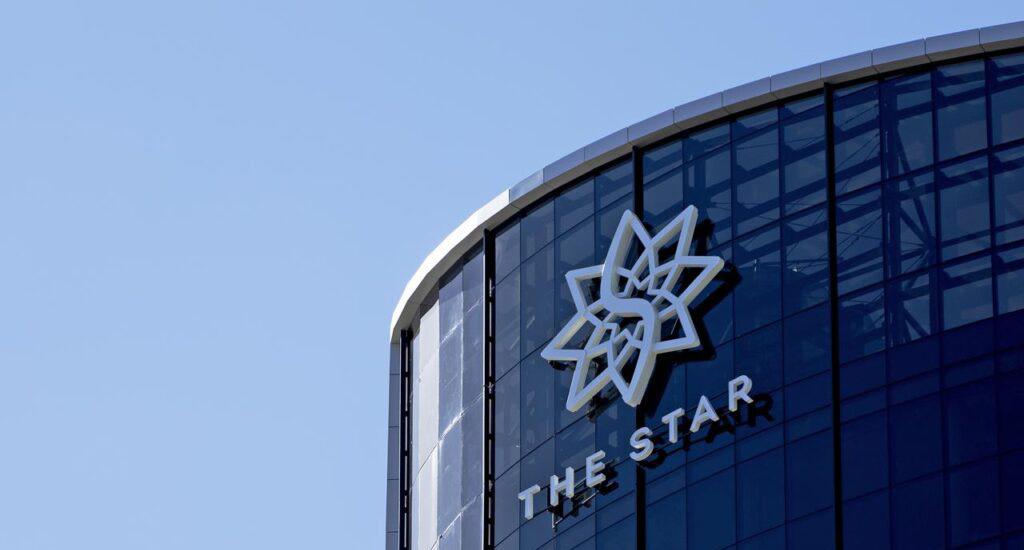
Star Entertainment Group has successfully negotiated a deal to divest its 50% stake in the Brisbane Queen’s Wharf precinct, a move that has sent its share price soaring.
In a bid to stabilise its operations, Star Entertainment has reached an agreement with Hong Kong investors, Far East Consortium and Chow Tai Fook, to sell its stake in the Brisbane precinct for a substantial $53 million. This deal marks a crucial turnaround for the casino operator, which had previously faced setbacks in securing the agreement.
Originally announced in March, the deal encountered complications in June when the investors expressed concerns regarding Star’s operational capabilities. However, the recent revival of the agreement has provided a much-needed lifeline for the company, which has been grappling with significant financial challenges.
The sale of the Brisbane stake is expected to alleviate some of the
financial burdens that Star Entertainment has been facing. With current debts associated with the precinct estimated at around $1.4 billion, the deal will help the company avoid a potential repayment of over $41 million to the investors.
Star will continue to operate the Queen’s Wharf precinct, receiving a fixed fee of $5 million per month until June 2026. This amount is set to increase by $1 million annually until June 2028.
Following the announcement of the deal, Star Entertainment’s share price experienced a surge, climbing over 30% to reach $0.11. This increase is particularly noteworthy given the company’s stock has been significantly lower than its historical levels, having dropped 78% over the past year from $0.52 and approximately 98% from its peak of $5.17 in 2017.
To fully appreciate the significance of this deal, it is essential to consider the broader context of Star Entertainment’s recent struggles. The company
has faced declining revenues, particularly at its Sydney casino, where strict anti-money laundering regulations have impacted operations. In the three months leading up to June 30, Star reported revenues of $270 million, a stark decline of 31% from the previous year.
This downturn has resulted in a $27 million loss for the quarter, contrasting sharply with a $23 million profit during the same period in 2024. The introduction of mandatory ID cards and cash usage restrictions has further exacerbated the situation, leading to a 17% drop in average daily revenue.
In addition to offloading its Brisbane stake, the deal allows Star Entertainment to consolidate its interests in Queensland, particularly focusing on the Gold Coast. As part of the agreement, the company will acquire a two-thirds stake in two hotels near the Gold Coast precinct from the Hong Kong investors.
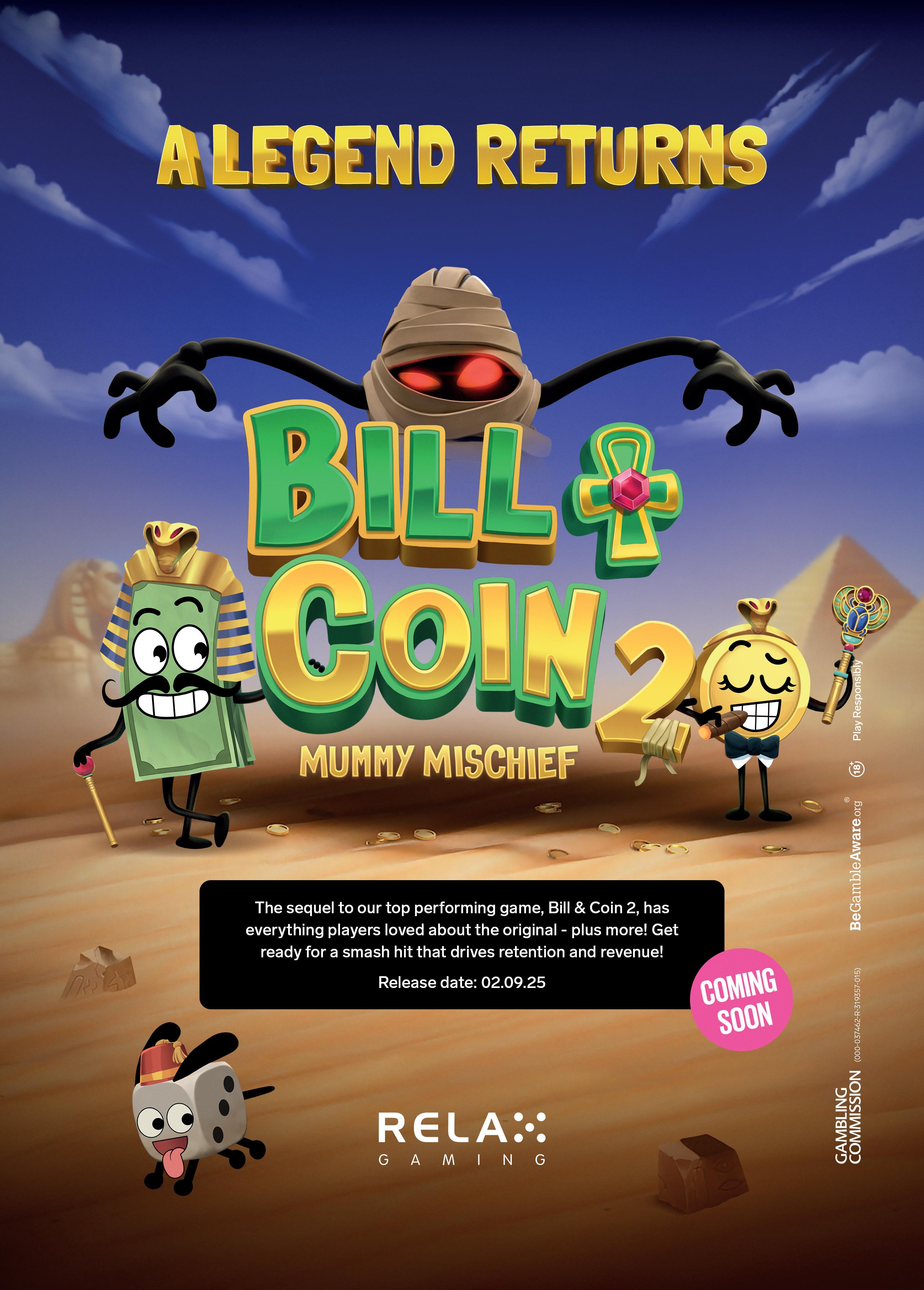
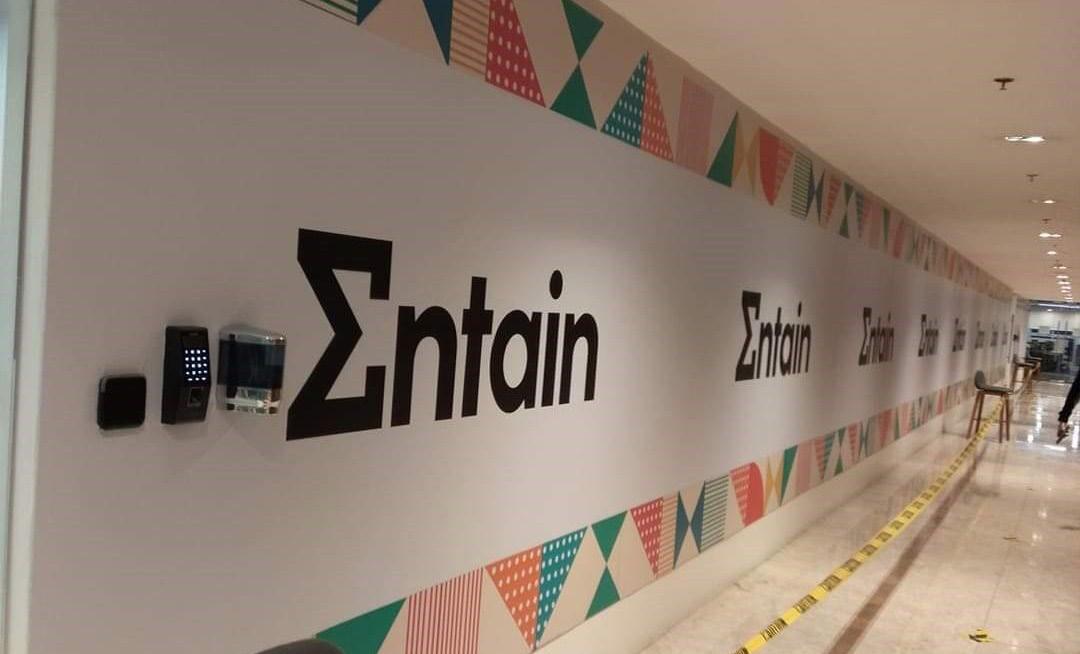
Entain has announced its financial results for the first half of the year, with a performance that has surpassed market expectations. The betting giant reported a 7% increase in total net gaming revenues, reaching £2.63 billion compared to the previous year. The growth is put down to robust performances across its operations in the UK, US, and Brazil. The underlying earnings before interest, tax, depreciation, and amortisation (EBITDA) also saw a significant rise of 11%, amounting to £583 million.
UK and Ireland Operations: The online segment in the UK and Ireland experienced a remarkable 21% growth, driven by a recovery in market share and enhanced customer engagement.
Brazilian Market: The Brazilian division mirrored this success, also achieving a 21% increase in revenues, largely due to the newly regulated gaming
framework in the country.
BetMGM Performance: The joint venture with MGM Resorts, BetMGM, reported a staggering 35% increase in revenues, with underlying earnings turning profitable at $109 million.
Following the H1 results, Entain has upgraded its full-year guidance. The company now anticipates approximately 7% growth in online net gaming revenue on a constant currency basis, with mid-single-digit growth expected on a reported basis. Furthermore, the group has introduced an EBITDA guidance range for FY25, estimating between £1.1 billion and £1.15 billion.
In light of its strong performance, Entain declared an interim dividend of 9.8p per share, reflecting the company’s commitment to returning value to its shareholders.
Despite the positive financial results,
Entain faced challenges that impacted its bottom line. The company reported a post-tax loss of £116.9 million, primarily due to £50 million in provisions related to ongoing AUSTRAC proceedings in Australia.
Stella David, CEO of Entain, commented: “I am delighted by the ongoing momentum and strong performance that both Entain and BetMGM have delivered in H1 2025. Entain’s transformation journey is well underway, gathering pace and is supported by our high-quality portfolio of iconic brands with podium positions in attractive markets. Our business is getting stronger, fitter and faster, with these results reinforcing our confidence in driving sustainable underlying growth and generating more than £0.5bn of cash annually in the medium term.” David’s remarks underscore the company’s commitment to sustainable growth and cash generation, projecting over £0.5 billion in annual cash flow in the medium term.
Eight a mbitious casino projects are competing fiercely for three state licenses in NYC. This competition has freed a wave of billion-dollar development plans that will reshape the scene in various parts of the city. These proposals show impressive investment figures between $5 billion and $8 billion.
T hese NYC casino projects bring major economic advantages that go well beyond gambling money. Local communities will benefit from new jobs, hotels, shops, restaurants and entertainment spots. The developers have shown their commitment to neighborhood growth. One bidder has already pledged $250 million to support community projects. Big names in gaming like Caesars, Bally’s, and Resorts World have joined this race. Some proposals project gambling revenues up to $23.3 billion over ten years. This competition goes way beyond the reach and influence of just casino permits. Developers aim to revitalize whole neighborhoods with affordable housing, parks, and cultural spaces that stretch beyond the gaming floors.
E ight casino proposals compete for NYC licenses
T he race for NYC casino licenses shows fierce competition among industry giants. Each company promises to revolutionize different areas of the five boroughs. These proposals need billions in investment and show different ideas about how gambling venues could alter the map of their surrounding communities.
C aesars Palace Times Square aims for luxury appeal
S L Green, Caesars Entertainment, and Jay-Z’s Roc Nation want to turn the building at 1515 Broadway into a highend destination. Their plan includes a 992-room, five-star hotel with top gaming amenities. The project will run under Caesars’ leading responsible gaming program. People won’t see any gaming activity from street level. The team expects $7 billion in direct tax and fee revenue. They also project $26.7 billion in local economic benefits during the first ten years. Broadway theaters strongly oppose the plan because they worry about neighborhood effects. The project’s supporters point to benefits like 3,800 permanent union jobs that pay around $120,000 yearly.
H ard Rock and Cohen pitch $8B Queens development
M ets owner Steve Cohen and Hard Rock International have big plans for Metropolitan Park. This $8 billion mixed-use project will surround Citi Field. They want to turn 50 acres of asphalt into a premier sports and entertainment district. The space will feature 25 acres of new public parks. A Hard Rock hotel and casino will create 23,000 well-paying union jobs. Studies show 89% of workers would come from New York State, and 55% would be local residents.
Coney Island project promises yearround tourism
A $3.4 billion casino could refresh Brooklyn’s famous beachfront with year-round activities. Plans call for a 500-room hotel and a 2,500-seat concert venue. The developers will give $200 million through the Coney Island Trust for public improvements. They’ll also provide $15 million each year for community support. Some people worry about effects on the historic amusement district.
Freedom Plaza offers housing and cultural space
T he Soloviev Group and Mohegan have plans near the UN headquarters. Freedom Plaza will have two residential

towers with 1,325 apartments—513 will stay permanently affordable. This $10 billion project features a 295,000-square-foot underground casino. Two luxury hotels will add 1,251 rooms, and a 4.77-acre waterfront park will beautify the area. A unique spiral-shaped Museum of Freedom and Democracy will stand as the public space’s centerpiece.
The Avenir targets Manhattan’s West Side
Silverstein Properties and Rush Street Gaming want to build The Avenir. This $7 billion complex will rise on Manhattan’s Far West Side. Plans include a 1,000-room Hyatt luxury hotel, a world-class casino, and more than twelve restaurants and bars. The location next to Javits Center should
boost convention business. Benefits include 4,000 construction jobs, 5,000 permanent positions, and 2,000 new homes.
World and MGM seek racino upgrades
Current racinos lead the race for full casino licenses. Resorts World New York City plans to spend $5.5 billion to grow its Queens facility. The expansion will add 6,000 slots, 800 gaming tables, 2,000 hotel rooms, and a 7,000-seat arena. They’ve given over $4.5 billion to public education since 2011. MGM wants to spend $2.3 billion to upgrade Empire City Casino in Yonkers. Plans include better gaming areas, high-limit lounges, and a BetMGM Sportsbook.
Bally’s Bronx plan faces zoning
Bally’s $4 billion Bronx casino at the old Trump Golf Links faces big hurdles despite offering many community benefits. The New York City Council voted 32-12 to approve key rezoning. Mayor Adams helped by lowering the majority requirement. Still, Bronx Community Board 10 said no with a strong 29-5 vote.
Equity and community perks used to win support
Developers want local support through community benefits. Freedom Plaza gives NYC residents 12% equity ownership. They’ll get 2% of profits (at least $5 million yearly) for community investment. Bally’s lets Bronx residents buy equity starting at $250. The community could own up to 9%. This new way of sharing wealth shows how casino developers now handle community concerns about big projects.
Broadway League opposes Times Square casino
The proposed Caesars Palace Times Square has sparked the creation of “No Times Square Casino” coalition. This group includes more than 31 organizations, with the Broadway League, IATSE unions, and many prominent local businesses joining forces. The coalition raises several issues about the Times Square plan. They worry about more traffic in an already packed area, harm to theaters and restaurants, and negative social impact. Manhattan’s Community Board 5 has clearly stated they don’t want casino development in their district. A June protest saw Tonywinner LaChanze leading crowds who chanted “Broadway is for Broadway shows! No to casinos!”.

Manhattan’s Community Board 5 has clearly stated they don’t want casino development in their district. A June protest saw Tony-winner LaChanze leading crowds who chanted “Broadway is for Broadway shows! No to casinos!”. The Entertainment Community Fund later joined the opposition and warned that a casino would make the neighborhood less safe for theater workers.
Coney Island locals fear beach access loss
“The Coney” casino plan has met strong resistance from Coney Island’s artists and residents. The arts nonprofit Coney Island USA, which runs the famous Mermaid Parade, worries the proposed development will “literally engulf” them. Their Artistic Director Adam Rinn sees two big problems: possible damage to their 100-year old landmark building during construction and fewer visitors during the four-year building period. Community Board 13 voted 24-11 against changing land use rules. Local opposition runs deep - over
20,000 people have signed petitions against the casino. “Coney Islanders Against the Casino” believes casinos “don’t build” but instead “take away from the economic vitality of a place”.
Queens boards split on Willets Point project
Steve Cohen’s $8 billion Metropolitan Park casino plan near Citi Field faces mixed political reactions. State Senator Jessica Ramos hasn’t backed the needed “parkland alienation legislation” after finding 65% of her constituents don’t want the casino. Yet some Queens politicians strongly support the NYCFC stadium development that’s part of the bigger Willets Point project. Locals worry about people being forced to move, traffic problems, and losing public parkland to private interests.
Manhattan boards push back on Freedom Plaza
Freedom Plaza’s proposal promises big community benefits but hasn’t
convinced Manhattan community boards. The Hudson Yards West casino plan was pulled back after “strong community opposition”. This shows how local opinion can stop even the best-funded projects.
Yonkers and Aqueduct sites face less resistance
The existing racino locations in Yonkers and Queens have much smoother sailing. Yonkers has already approved zoning changes for Empire City Casino’s expansion, clearing hurdles before the state makes its choice. Mayor Mike Spano actively promotes MGM’s Empire City Casino, calling it “shovel ready” with solid community backing.
Economic promises drive billion-dollar bids
NYC casino proposals showcase flashy renderings and promotional campaigns that reveal a high-stakes economic race. Developers make extraordinary financial promises to win these coveted licenses.

Projected revenues range from $2B to $23B
These projects come with remarkable economic forecasts. Caesars Palace Times Square expects $23.3 billion in gambling revenue during its first decade. Freedom Plaza developers in Manhattan predict first-year revenues of $2.2 billion, which could reach $4.2 billion yearly within ten years. Steve Cohen’s Metropolitan Park in Queens projects $3.9 billion in annual revenue after just three years. These numbers would make New York’s casinos some of the world’s most profitable gaming venues.
Experts question market saturation and cannibalization
These impressive projections face scrutiny from industry experts who worry about market sustainability. Pennsylvania’s declining casino tax revenues, despite market growth, hint at possible market saturation. New York’s gaming revenue reached
$4.72 billion in 2023, but new casinos might hurt existing operations. A casino executive recently questioned future investments as online gaming legalization could reduce brickand-mortar revenues, similar to neighboring states.
Gaming Commission and CACs hold final say
Two key decision-making bodies now hold the power to make or break NYC casino proposals, even the most ambitious ones. Local Community Advisory Committees (CACs) act as the first checkpoint, while the state Gaming Facility Location Board makes the final call on which projects move forward.
CACs must approve plans by September 30
A specially appointed six-member CAC reviews each casino application and gages local support through public meetings and community feedback.
These committees need a two-thirds majority vote to give any casino proposal the green light. Just three CAC members who vote no can stop a project dead in its tracks, no matter how strong its financial backing. All eight NYC casino license applicants must get their respective CACs’ decisions by September 30, 2025. Projects that don’t get this vital local backing can’t move on to state-level review.
Projects that clear the CAC hurdle head over to the Gaming Facility Location Board with extra paperwork, including their proposed tax rates. The board plans to announce its picks by December 1, 2025, and the Gaming Commission will hand out up to three licenses by December 31. The winners must then pay a $500 million license fee for each casino right away. This quick timeline will help New York State collect these huge fees ahead of schedule.
The applicants must also complete all land-use, zoning, and environmental reviews before the September deadline. Winning proposals need both regulatory compliance and strong public support.
No clear front-runner, say officials
Vicki Been, who chairs the Gaming Facility Location Board, says all casino proposals face some pushback from their communities. All the same, she believes strong candidates will emerge, pointing to “a lot of economic development potential”. Big players like Bally’s have hit major roadblocks - the New York City Council’s rezoning rejection shows this clearly. Been notes that community opposition comes with the territory when projects change neighborhoods this much.
The Infinity Gaming Magazine looks back at the history of Malta and how it became the online gambling capital of the world
Malta has revolutionized its status from a small Mediterranean island to become the world’s online gambling capital. The island now serves as an international hub for iGaming operators and investors worldwide. Several key factors explain this modest nation’s rise to prominence in the online gambling industry.
The success story of Malta’s online gambling began in 2001 with the creation of the Malta Gaming Authority (MGA). This regulatory body oversees all gaming activities. The island’s gaming license system and favorable gambling laws have created perfect conditions for gaming businesses to thrive. On top of that, Malta offers one of the EU’s lowest corporate tax rates at 35%, which makes it especially attractive to international operators. Companies based in Malta also benefit from efficient access to the European Single Market as EU members.
Malta’s 20+ years old regulatory framework serves as the life-blood of its
online gambling industry success. The country has carefully built a legislative environment since the early 2000s that balances strong consumer protection with business-friendly policies.
Malta stands out because of its innovative gambling legislation approach. The island became the first EU member state to regulate online gambling in detail. Many jurisdictions have tried to copy this blueprint since then.
The Malta Gaming Authority works with remarkable speed and processes license applications through optimized procedures. Operators appreciate this predictability and transparency, which differs from the regulatory uncertainty
in other jurisdictions.
The regulatory framework provides four different license classes, so operators can choose what fits their business model best. Both startups and established companies find this flexibility attractive.
Malta’ says its dedication to high regulatory standards and state-of-the-art solutions has made it the top choice for gambling operators. The country updates its regulatory framework regularly to handle new technologies and market changes. This commitment says the authority keeps strengthening Malta’s position as the world’s leading online gambling hub.


Malta’s tax framework attracts online gambling operators from around the world. The country’s corporate tax rate stands at 35%, which might seem high at first. But thanks to Malta’s full imputation tax system and refund mechanisms, companies can bring this down to just 5%. Companies get this low rate because shareholders receive a 6/7ths tax refund when dividends are distributed.
Gaming companies pay only 5% Gaming Tax on revenue from Maltabased players. This tax applies only to players within Malta, which means revenue from international players stays tax-free. Most operators generate their biggest share of revenue from these international players.
The tax benefits extend to gaming professionals too. People with high qualifications in online gambling
can pay a flat 15% rate on their personal income. CEOs, CTOs, and other specialized roles qualify for this benefit.
Malta supports new businesses and R&D activities strongly. New gaming companies don’t need to pay compliance contributions for their first 12 months. This helps them establish a solid foundation before regular tax obligations kick in.
These tax advantages make Malta unique. Online gambling operators can boost their profits while staying compliant with regulationssomething rare in other jurisdictions.
Malta sits at the meeting point of Europe, Africa, and the Middle East. This strategic Mediterranean location makes it a perfect hub for gaming operators who can reach multiple markets and work smoothly with global teams across different time
zones.
Malta’s EU membership brings huge advantages to gambling companies. The country’s regulatory framework allows licensed operators to provide services across EU borders under single market principles. Companies can tap into the profitable European market with just one license instead of getting permits from each country.
The island’s digital setup is impressive. Malta offers cutting-edge telecommunications, fast internet, and modern data centers that keep gambling operations running smoothly and securely. These tech advantages have caught the attention of more than 300 gaming companies, which now employ over 10,000 professionals from around the world.
The local talent pool adds to Malta’s strength. The country puts significant resources into education programs that match industry needs. Universities now offer specialized courses in gaming and betting laws. The industry’s global nature shows in its workforce - as of 2019, nonMaltese workers made up 68.6% of online gaming employees. This €779 million industry now represents 13% of Malta’s economy.
Malta’s business environment helps companies thrive through networking. Events like SiGMA run throughout the year and promote collaboration and breakthroughs. SiGMA alone brought in €100 million in tourism spending in 2024, which helps cement Malta’s position as the world’s online gambling capital.



